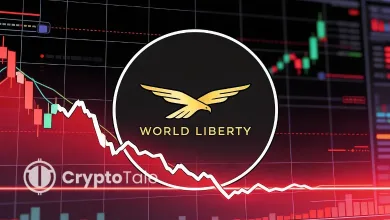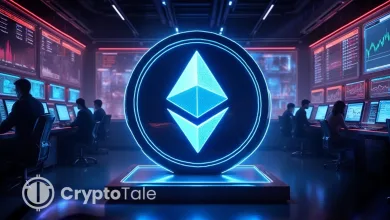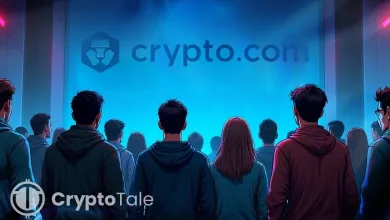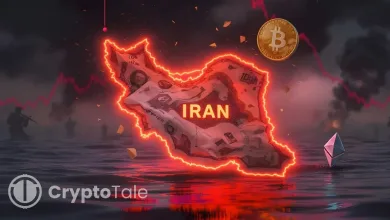BlackRock Avoids XRP, Solana ETFs Amid Unclear Rules
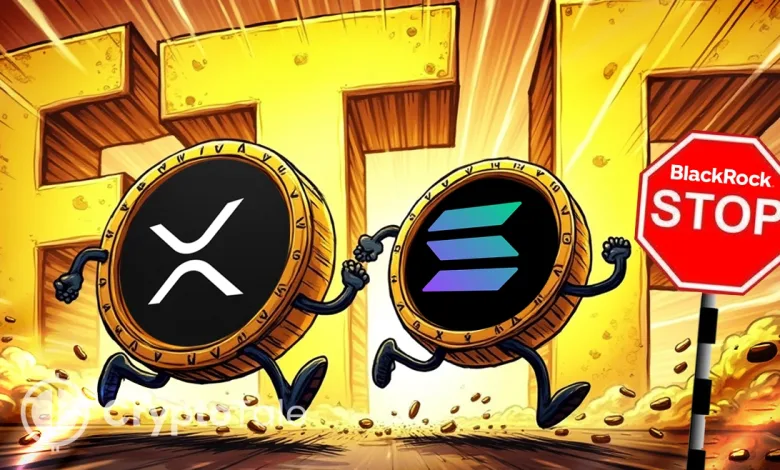
- BlackRock confirms no plans for XRP or Solana ETFs, focusing on Bitcoin and Ethereum.
- Regulatory clarity remains key as BlackRock holds off on altcoin ETF expansion.
- BlackRock’s decision reflects a cautious stance, awaiting clearer rules before expanding.
BlackRock has confirmed it has no current plans to launch exchange-traded funds for XRP or Solana. The announcement follows months of market speculation that the asset manager was preparing filings for such products. The company reiterated that its cryptocurrency ETF focus remains limited to Bitcoin and Ethereum.
The statement aligns with remarks from BlackRock’s Chief Information Officer, Samara Cohen, who previously noted no interest in altcoins beyond Bitcoin and Ethereum. Market data showed no significant price movements for XRP or Solana following the clarification. Analysts suggested the lack of reaction indicated traders had already discounted speculative ETF rumors. BlackRock’s position underscores a conservative approach in its cryptocurrency investment products.
Regulatory Context and Market Speculation
Industry experts have speculated that BlackRock will eventually expand its ETF offering into major altcoins. Nate Geraci, President of NovaDius Wealth Management, had been confident that the firm would pursue separate XRP and Solana ETFs. He opined that maybe BlackRock was biding its time until a more apparent regulatory framework to take such actions. His conjecture has gained publicity following a joint motion filed by the SEC and Ripple to dismiss their appeals.
BlackRock made its denial soon after this regulatory event, indicating that the settlement of the lawsuit did not shift its stance. Other observers had tied the pending legal fight as an overriding impediment to an XRP ETF application. The fact that the firm refused even after the case was closed implies that there are other factors determining when it will do so. Such considerations can be related to compliance plans and risk management within an environment with a constantly changing legislative framework. According to market analysts, regulatory transparency forms one of the critical issues when it comes to institutional product launches.
Strategic Positioning in the ETF Market
Geraci has also pointed out that not including XRP and Solana might prove a strategic error of BlackRock in the long-term perspective. He proposed that these ETFs would make the company competitive in the industry of crypto ETFs by filing such ETFs. Offering Bitcoin and Ethereum only may make BlackRock look like it prefers some assets over others. He termed this discriminatory treatment as being disadvantageous to a diversified crypto market. Nevertheless, he admitted that it is possible that the strategy of BlackRock is not fully sped up.
The company appears to be committed to the gradual expansion of its cryptocurrency ETF range. This can include waiting not just until regulations are cleared, but also market circumstances that will allow widespread adoption. BlackRock is not the only institution that is taking a conservative approach, as large financial institutions do. Most firms tend to introduce new products under conditions of stability in compliance. This will eliminate the potential risks associated with early adoption of ETFs involving altcoins, including legal and reputational risks.
Related: SBI’s Dual ETF Push: Japan’s Bid to Lead in Hybrid Investing?
Ongoing SEC Reviews and Industry Outlook
While the SEC continues to review several XRP and Solana ETF applications, final decisions on these filings are expected later this year. Industry experts, such as Bloomberg, Eric Balchunas, and James Seyffart, are expecting that there will be at least one ETF approval this year. These approvals may create competitive pressures for companies that have not yet entered the altcoin ETF market. Analysts expect that successful launches would affect the filings of big players in the future.
BlackRock’s decision to stick with Bitcoin and Ethereum ETFs signals a calculated, cautious play in the evolving crypto market. By sidestepping XRP and Solana for now, the firm avoids the legal and regulatory uncertainties still hanging over altcoins. However, with competitors pushing forward, market dynamics could shift quickly.

